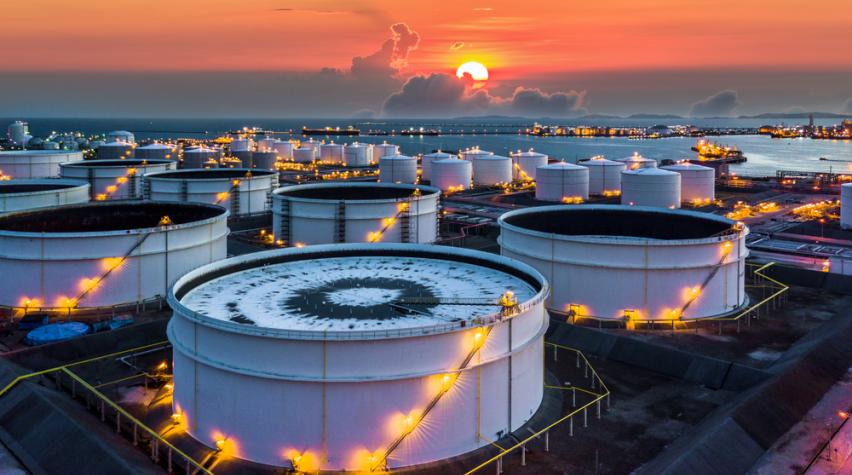
Disclosure: This post is sponsored by Acelen and reflects their views, opinions, and insights.
Acelen is an important player in the energy sector, with its Mataripe Refinery processing over 300,000 barrels of oil per day, equal to 14% of Brazil’s total refining capacity and over half of the supply for the entire northeastern region of Brazil. Representatives from Acelen will be featured throughout the program at the 9th CCPS Latin American Conference on Process Safety. I spoke with Celso Ferreira, Chief Operating Officer of Acelen, about the importance of process safety in Acelen’s strategy as a new company, the role of leadership and governance in process safety, and what he sees as Acelen’s main process safety challenge.
The 9th CCPS Latin American Conference on Process Safety will take place October 18–20, 2022 in Rio de Janeiro, Brazil. Topics covered include leadership and culture in process safety, emerging topics, cyber risks and process safety technologies, among others. You can view the conference’s program and register on the conference website.
How does Acelen understand the importance of process safety to its strategy as a new company?
Acelen understands that a robust process safety program and a strong and integrated management system, which includes safety of facilities, processes, and products, are crucial to the success of any company, being essential elements for the company's business strategy. For us, process safety and adequate risk management at the facilities of the Mataripe Refinery (BA), our first asset, is a non-negotiable value, with the main principle being the prevention of serious accidents and the protection of people and the environment.
We have a specialized team to guarantee a completely safe environment, as well as expanding the requirements to all other areas, to guarantee excellence in the pursuit of process safety throughout the corporation. The main objective is to create a culture in which all employees are fully committed to safety, acting preventively to avoid situations of vulnerability.
Since we took over the refinery, we have promoted improvements in physical facilities for greater safety, as priority for the company. We are strongly committed to safety, continually improving the excellence of our processes and structures, providing resources and skills to ensure the safety of our activities, our employees, the environment and the community of the municipalities surrounding the refinery.
Does Acelen clearly understand the roles and responsibilities of the senior leadership and fundamentals of governance on process safety?
The safety culture, like any other culture, needs to be sponsored by senior management so that it is internalized and permeates the entire company, and reaches the level of interdependence. In this sense, it is essential that the leadership assumes its role of protagonist and is at the forefront of decisions, leading the strategies and diligence of the process. For its effectiveness, it is essential to define a corporate governance of process safety, providing the tools, knowledge, and structures necessary to maximize the security performance of the organizations they lead, in addition to ensuring unrestricted compliance with legislation.
Acelen has robust safety governance, based on the vision of unrestricted commitment to process safety, and establishing the means to achieve its safety objectives and monitoring performance. Acelen's leadership understands that instituting safety governance is a key element to consolidate a strong process, not being subject to choose, but an obligation for the sustainability of the business.
Some essential topics for the consolidation of a process safety culture are highlighted: the establishment of a safety management system, integrated with other HSE disciplines, to identify, prevent and mitigate serious accidents hypothesis, as well as meet legal requirements; the unrestricted commitment of senior leadership and management to meet process safety goals and corporate requirements; and the promotion of a preventive corporate philosophy, focused on a safer approach to business and risk reduction goals.
Communication is also essential in this process. The creation of a permanent process safety communication channel between senior management and the staff is an important tool to reinforce the role of senior management in identifying and managing risks. In this sense, it is necessary that there is an effective communication to the company's board about the most significant process safety risks and the management actions in force. Likewise, it is important to develop risk awareness and preventive culture for the entire workforce.
Thus, within our governance we have the monthly process safety committee, in which all relevant and pertinent aspects of this discipline are evaluated and strategies are implemented by the leaders of our operations, as well as the bimonthly HSE&ESG committee of the company's board, to define strategies and monitor their deployment in the process units
How does Acelen ensure effectiveness in identifying and managing its process safety risks?
The fundamental principle of consistent process safety management is to be aware of the hazards and risks inherent in each business. This is the core of a process safety management model, which will guide all risk control decisions.
Process safety is a value for Acelen, which is building excellence management through the implementation of an integrated health, safety, and environment management system, called SIGA. The Acelen safety management system includes process safety guidelines and management standards, in addition to technical procedures based on the best references of national and international practices. Among the process safety guidelines and policies, it is important to highlight the care taken in the development of risk identification procedures, risk assessment and controls, in line with the best qualitative, semi and quantitative methodologies and modern risk acceptability criteria.
Another important decision was the creation of an experienced team of process safety experts and leaders, defining roles of responsibilities for the main demands, and supporting process safety and risk-based decisions. In other words, we have a high-performance team to identify possible vulnerabilities and risks throughout the life cycle, including design, operation, maintenance and decommissioning phases, considering manufacturing, storage, and logistics facilities. Acelen's process safety policies also include the barrier approach, which emphasizes the importance of instituting a critical barrier of protection between a hazard and a chance of accident and seeking to strengthen these barriers.
Acelen also has an efficient risk control systematic and process safety metrics, a crucial part of process safety management. Follow-up on leadership committees is a strategic approach, especially prioritizing the adoption of metrics such as collecting and analyzing smaller events that could escalate into a major event – known as ‘basis of pyramid’ approach
What do you see as about the main process safety challenges to Acelen facilities and business at all?
Acelen is a company that was born big and with important challenges. From the beginning, managing process safety has always been of vital importance to the business. We aim to evolve with excellence in the energy sector, with respect for people and the environment. Among our priorities is to ensure the safety of the communities surrounding our facilities - which include refining process units, maritime terminals, and long-distance pipelines -, and the preservation of the environment, using an efficient mapping and management of process risks, as part of a process safety management system.
Another important challenge is to manage facilities that have been in operation for decades and have an established work culture, incorporating all existing good practices into our standards and seeking in parallel and incessantly to evolve to ever greater levels of excellence. The implementation of a management model and own culture of process safety requires specific actions and efforts, with the introduction of new managerial, technological solutions and technical references, guaranteeing the necessary investment, especially in mechanical, automation and digital integrity - always prioritized by the risks.
Then, since we took over the management of the refinery, we have pursued operational excellence, seeking greater efficiency and innovation in favor of a more sustainable environment. In this sense, we are implementing a robust investment program (R$1.1 billion in 2022) to modernize the refinery – which accounts for about 14% of Brazil's total refining capacity – increasing production, reliability, efficiency, and contributing to the country's development.
Learn more about the 9th CCPS Latin American Conference on Process Safety.

Celso Ferreira
Celso Ferreira has more than 30 years of experience in operations and supply chain at companies in the petrochemical, chemical and sugarcane ethanol sectors. He is the Chief Operating Officer at Acelen.
Disclosure: This post is sponsored by Acelen and reflects their views, opinions, and insights


